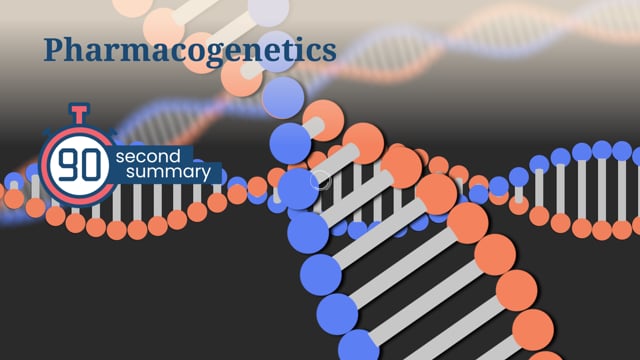Pharmacogenetics: How Genetic Testing Can Guide Medicine Decisions
What Is Pharmacogenetics?
Pharmacogenetics (also called “pharmacogenomics”) uses a person’s genetic information to know how some medicines will work for them. Our genes, or DNA, provide the blueprint for our bodies and the things that make us unique. In some cases, doctors can use this genetic information to help pick which medicines or doses of medicines may be safer or work better for a person. This helps people to get the right medicine at the right dose for them.
Pharmacogenetics is part of “precision medicine” (also called “personalized medicine”). Precision medicine is a way for doctors to prevent, diagnose, and treat diseases based on things that make a person unique — like their age, gender, medical conditions, lifestyle, and genetic information.
How Does Pharmacogenetics Work?
Genes can affect how our bodies react to some medicines in different ways, such as:
- How the body breaks down (metabolizes) and removes medicines. Not every person’s body breaks down medicines at the same rate. In some people, a medicine might break down too fast or too slow. If some medicines break down too quickly, the level of drug in a person’s body may be too low for it to work well. If some break down too slowly, the level of drug in the body could be too high and cause side effects.
- How the body turns on (activates) medicines. The body needs to activate, or turn on, some medicines for them to work. If the body turns on too much active medicine, it can cause side effects. Or a medicine might not work if the body doesn’t turn on enough of it.
- How likely someone is to have a bad reaction to a medicine. Some genes can make a person more likely to have a rare but serious reaction to a medicine. If someone has one of these genes, doctors can choose a different medicine that is safer.
-

90-Second Summary: Pharmacogenetics
Learn the basics in 90 seconds.
When Is Pharmacogenetic Testing Used?
Doctors might order pharmacogenetic testing before starting a new medicine or changing to a different one if a medicine didn’t work well or caused side effects.
Doctors can use pharmacogenetic testing to choose certain medicines for:
- acid reflux
- anxiety
- cancer
- depression
- heart disease
- infections
- pain
- seizures
Testing also can help when a person’s immune system needs to be suppressed (blocked or “turned down) after an organ transplant. That’s because the immune system won’t recognize the donor organ and can attack it. Getting the right dose of the right immune-blocking medicine can help better protect the new organ and the person’s health.
What Is a Pharmacogenetic Test?
A pharmacogenetic test uses a sample of saliva (spit), a buccal (cheek) swab, or blood. The sample goes to a lab, which runs tests on the genes that determine how the body will handle some medicines. Changes or differences in those genes could mean some medicines will work well for a person or that they might cause side effects.
Depending on the lab, test results usually are ready in a few weeks, but may take a couple of months.
Ask your doctor or the lab which sample method is best for your child’s test.
How Do We Get a Pharmacogenetic Test?
Ask your doctor if pharmacogenetic testing is available near you. It might not be available everywhere.
What Do the Pharmacogenetic Test Results Mean?
The doctor will discuss the pharmacogenetic test results with you. Depending on the results, they might make changes to your child’s medicines. Do not stop or change any of your child’s medicines without talking to the doctor. Doing so could cause serious health problems.
Pharmacogenetic results do not change over time, so they can be used throughout a person’s life. Experts may discover new genetic tests or uses, so your child’s testing could be updated later.
Genes and genetic test results aren’t the only information doctors use when making decisions about medicines. They also consider other things about a person and their health, then come up with the best treatment plan.
If you have questions about the possible role of pharmacogenetics in your child’s care, talk to your doctor.
